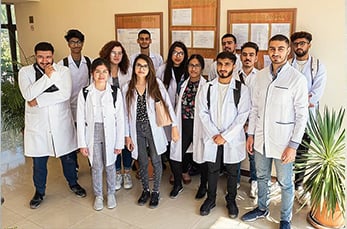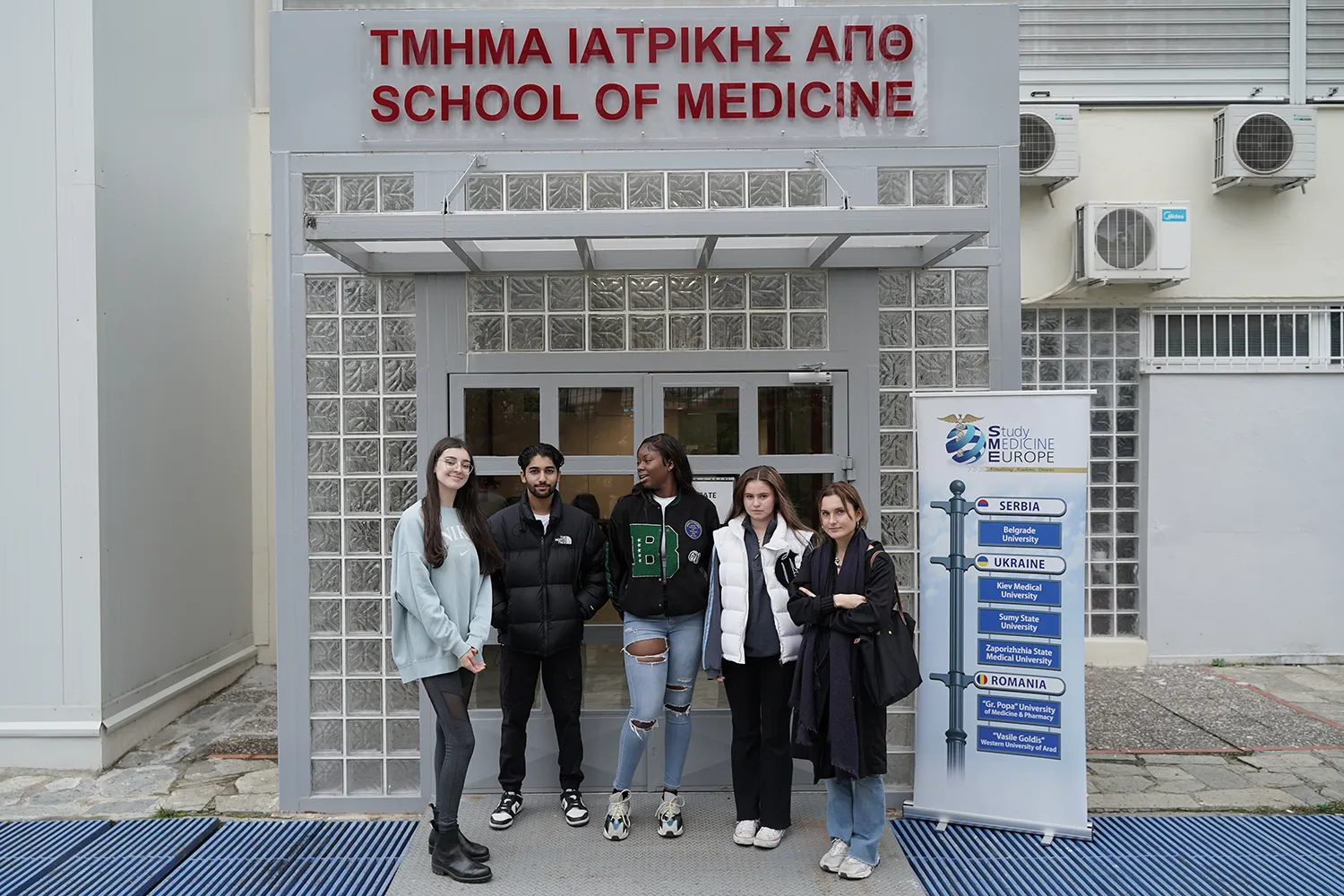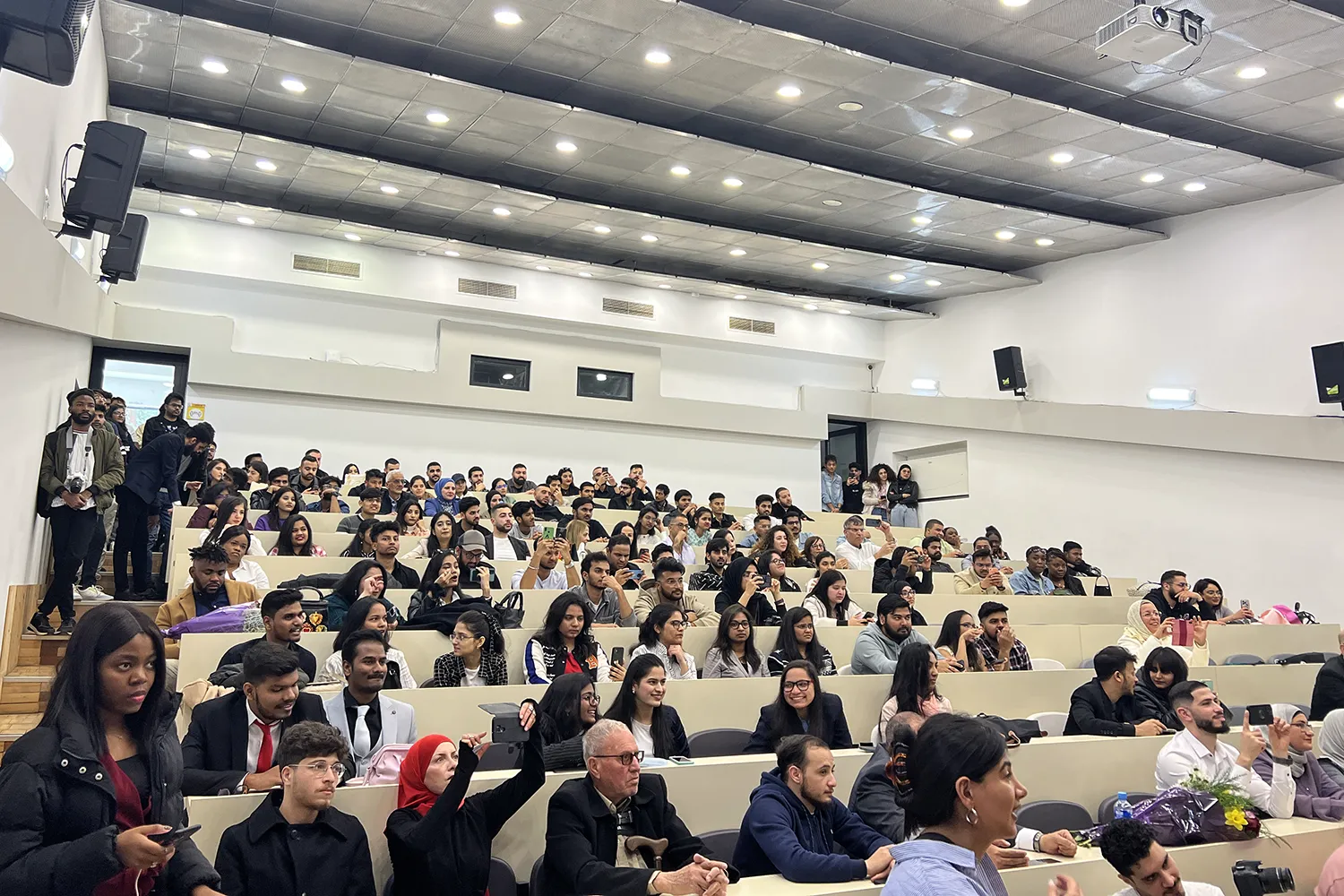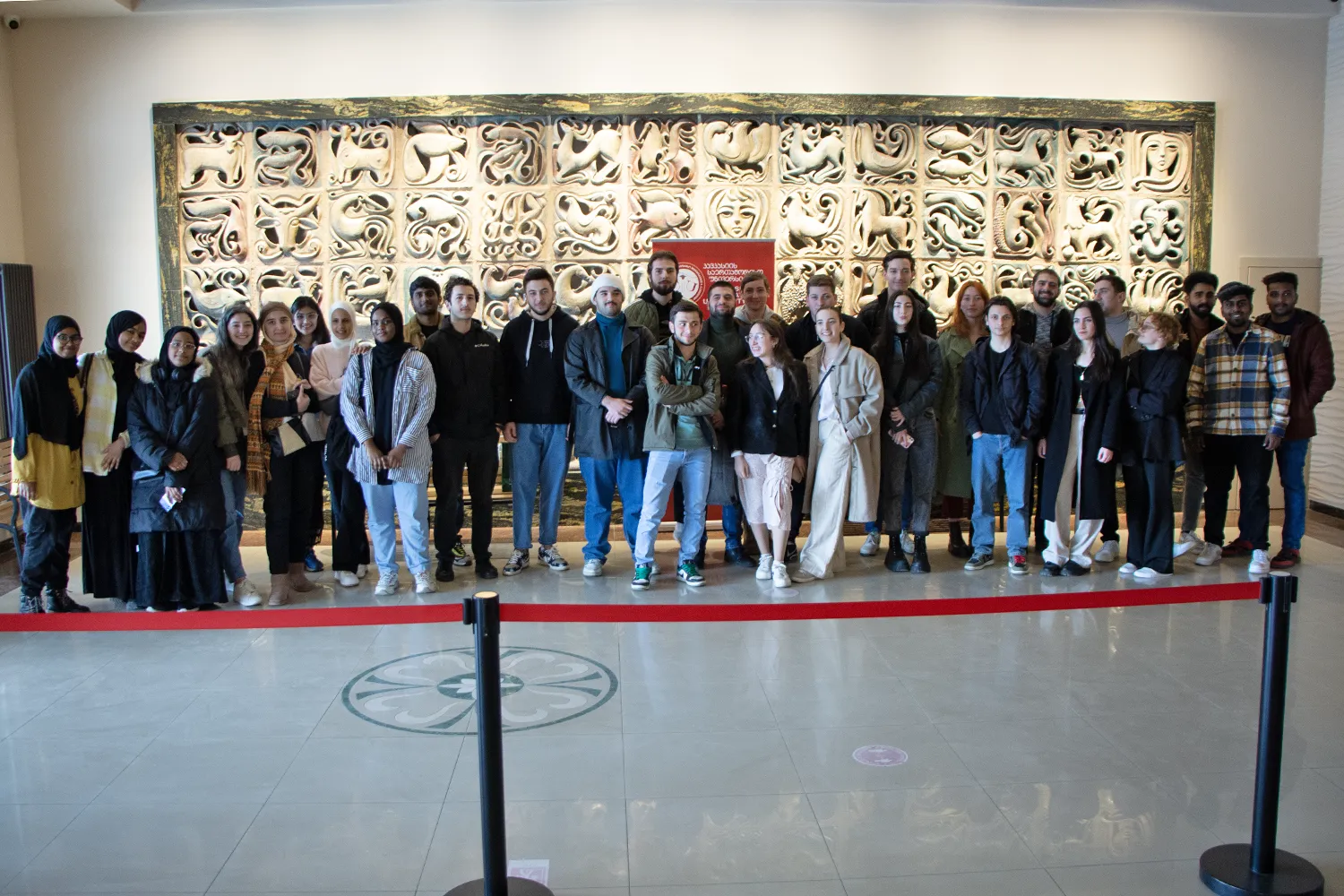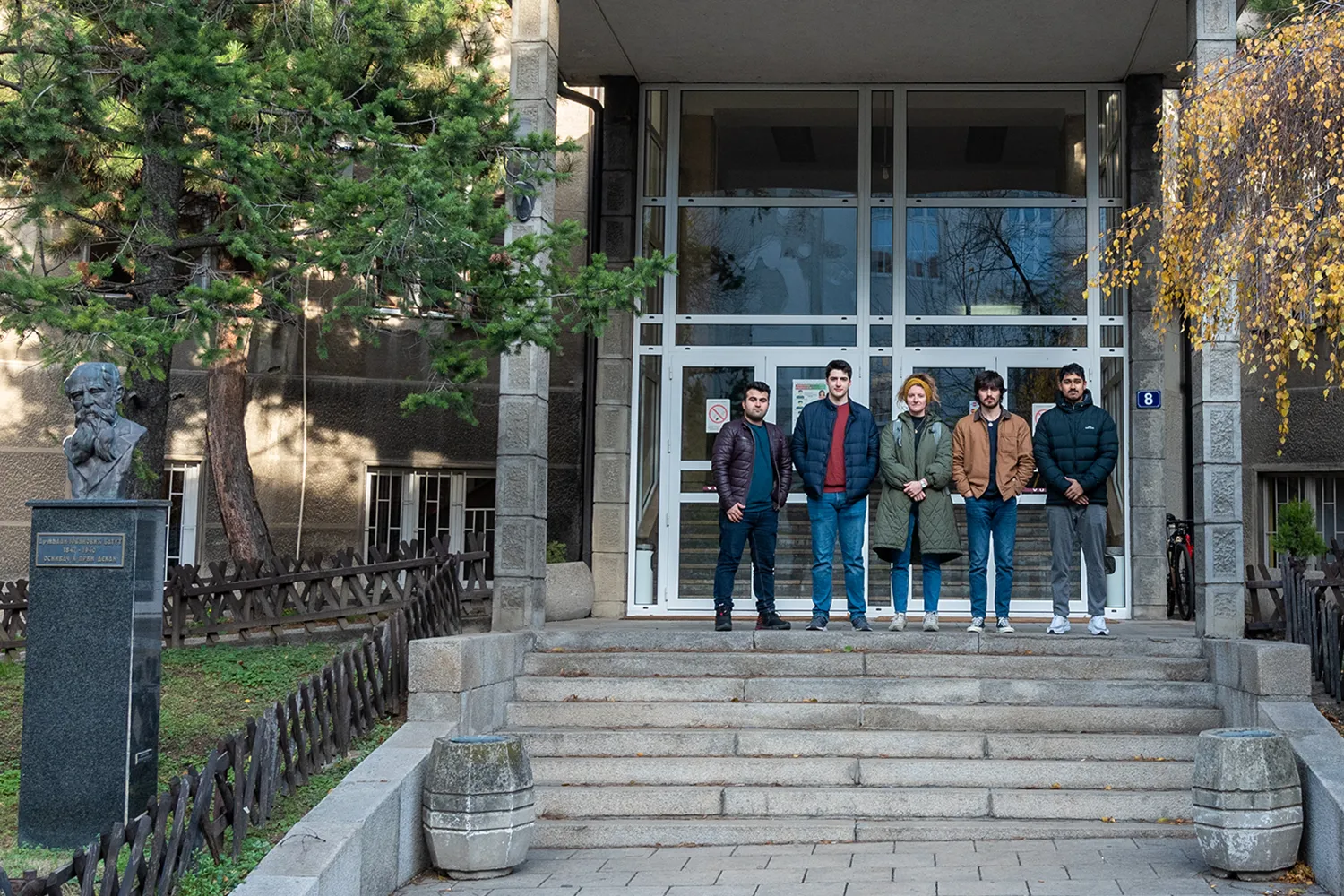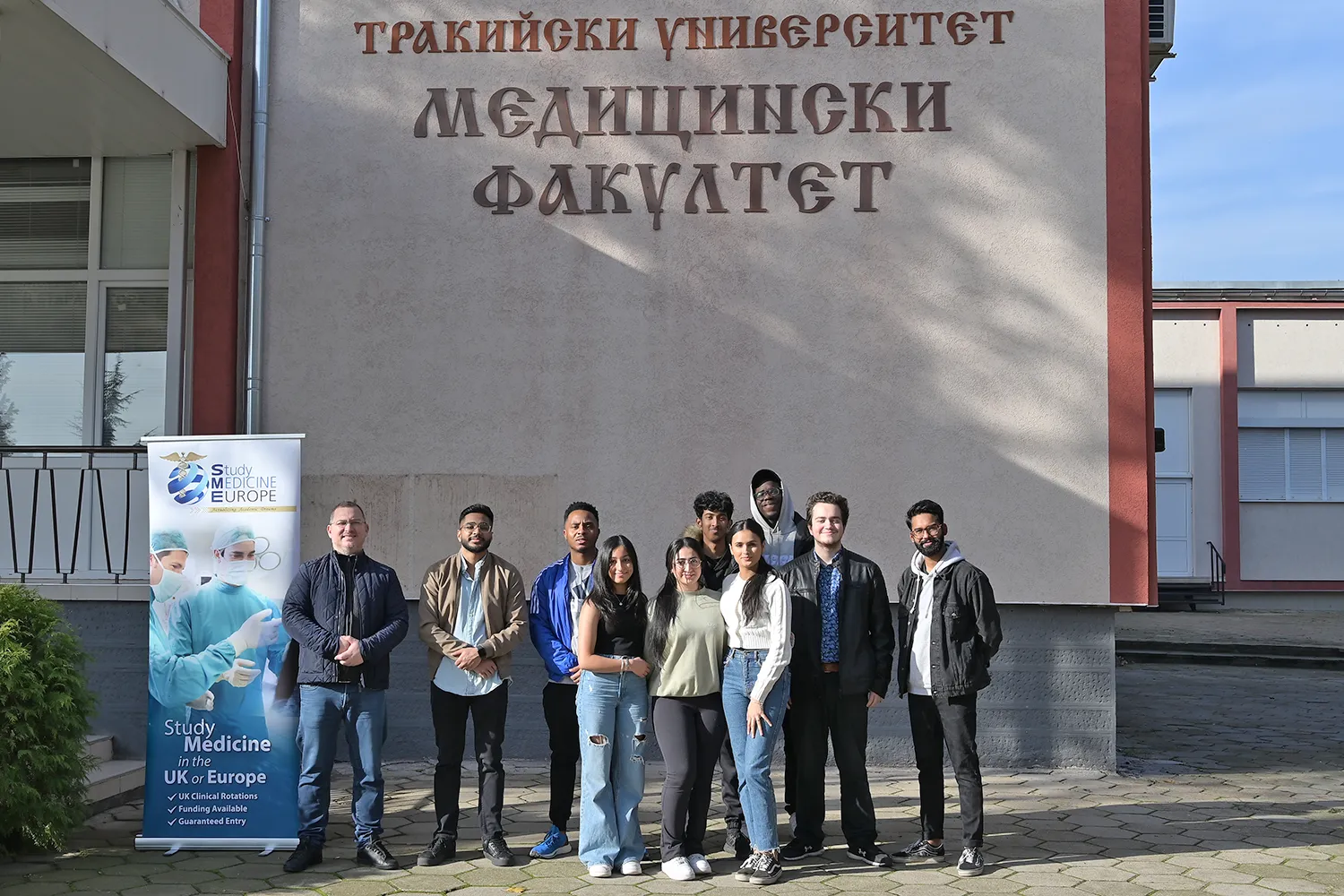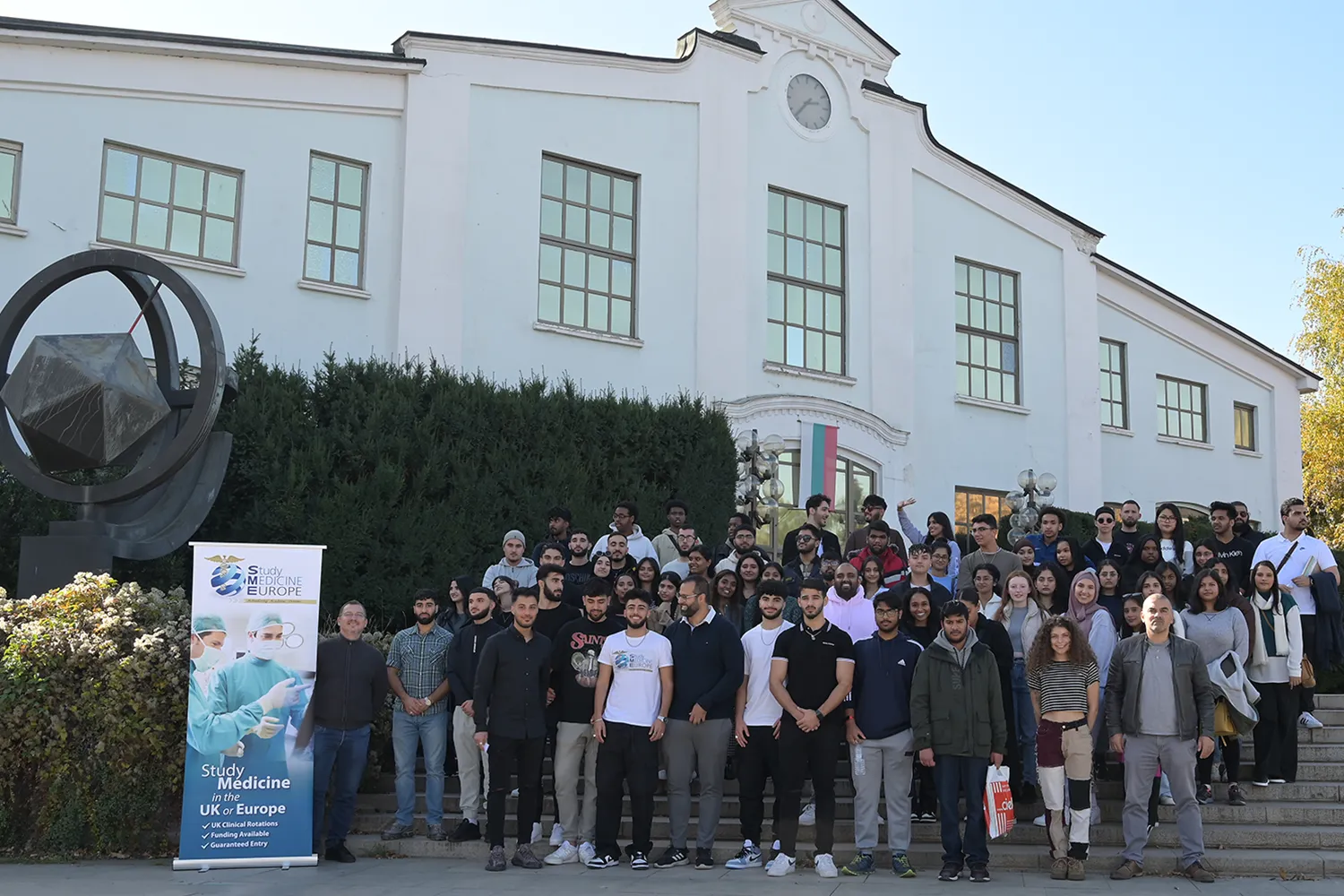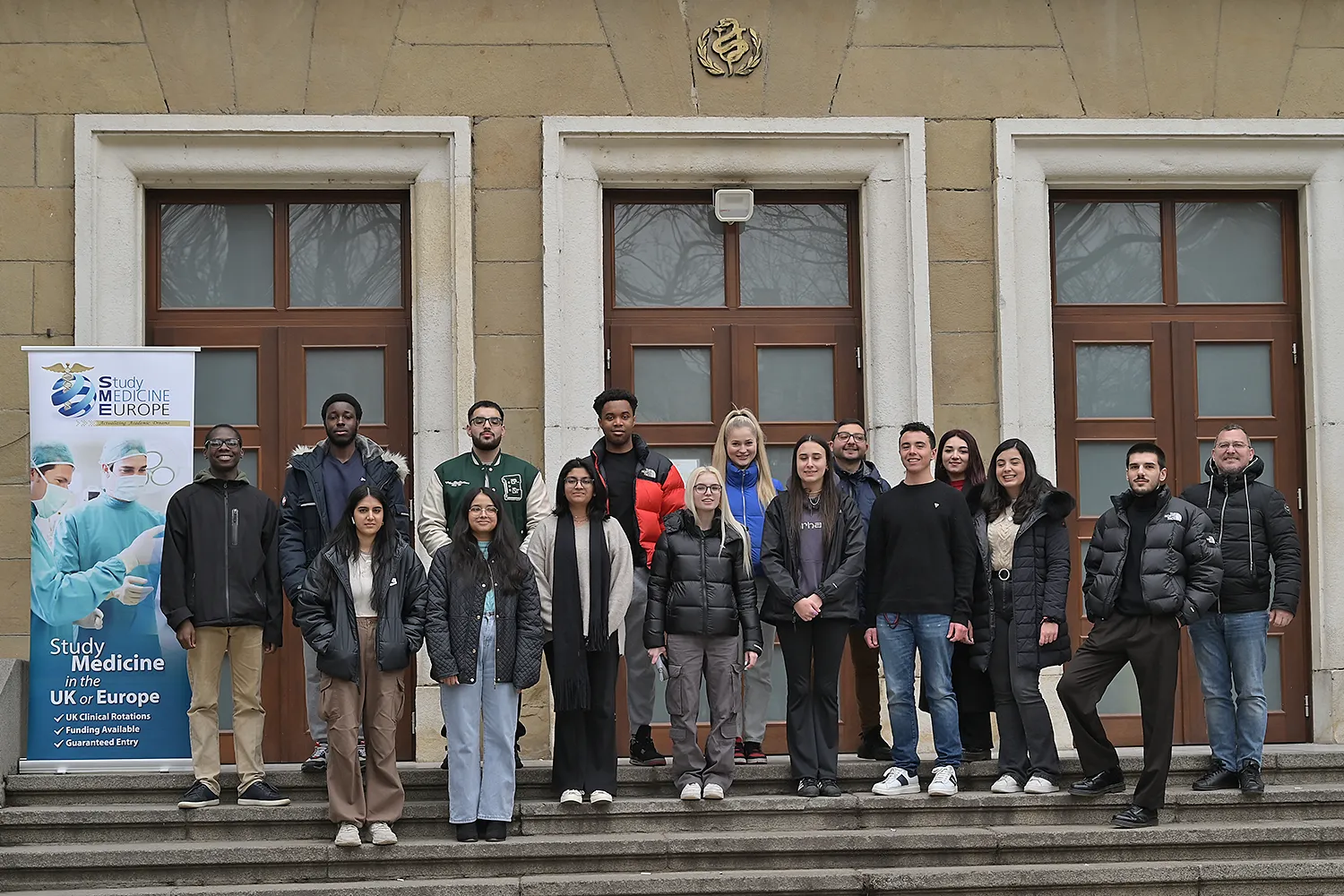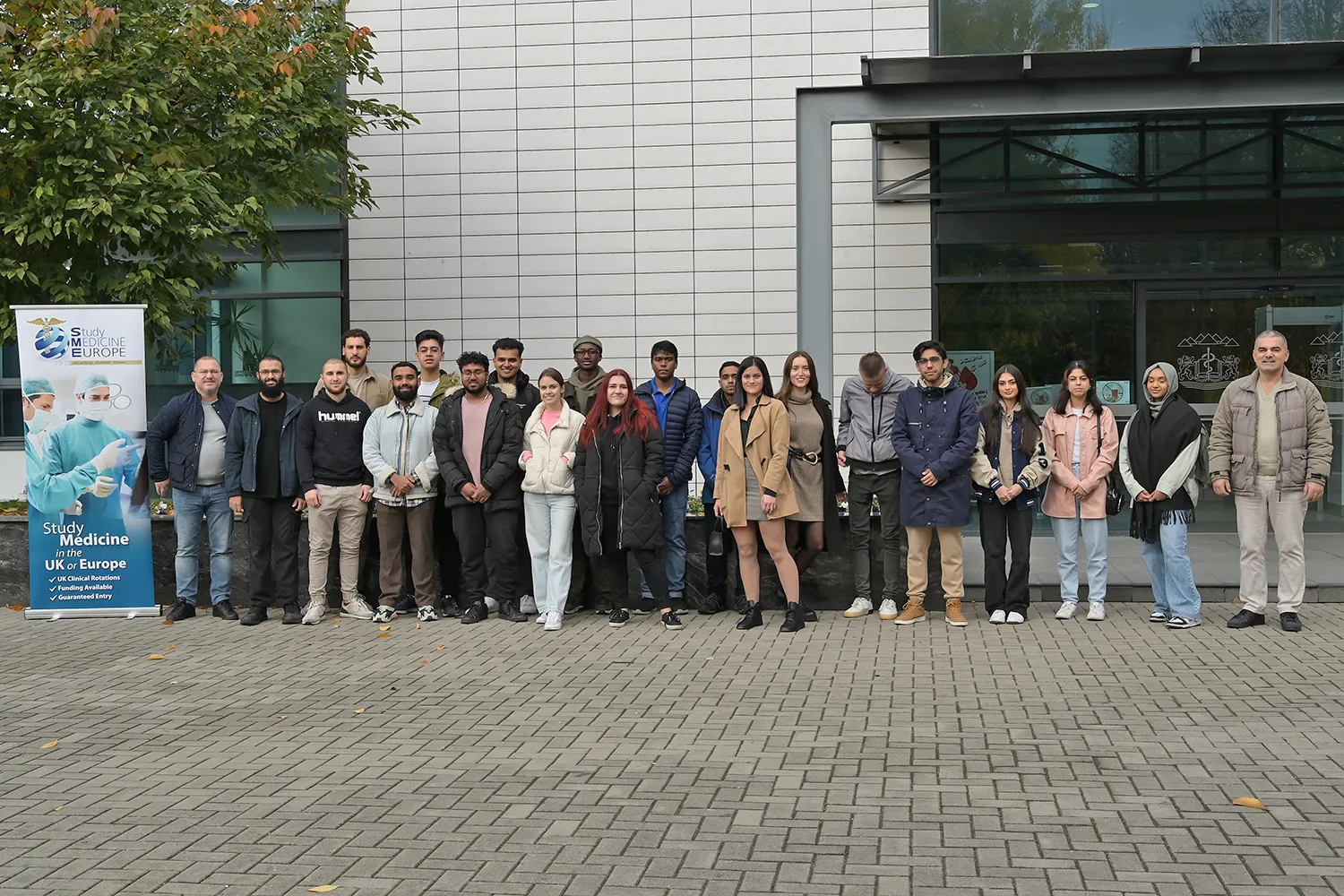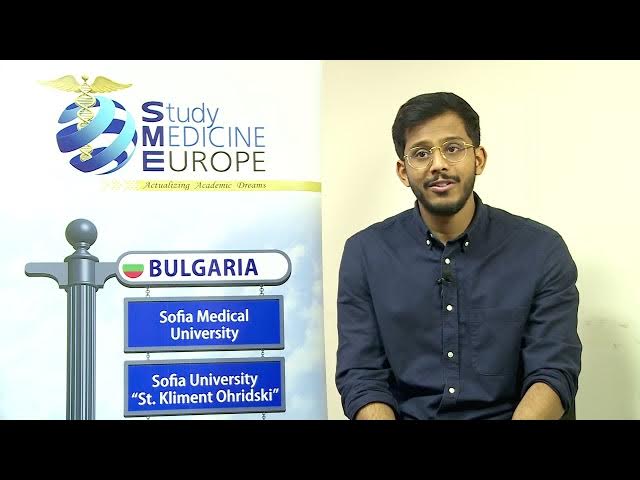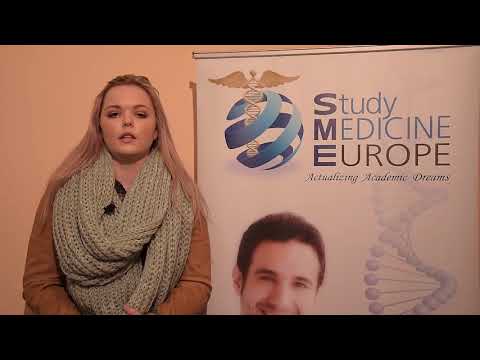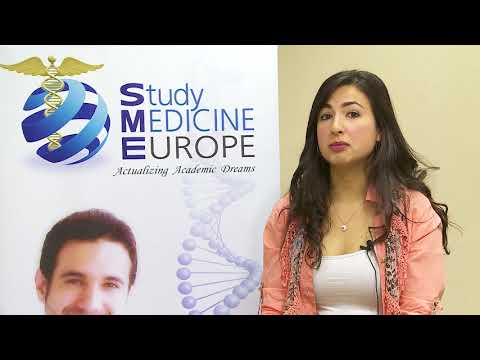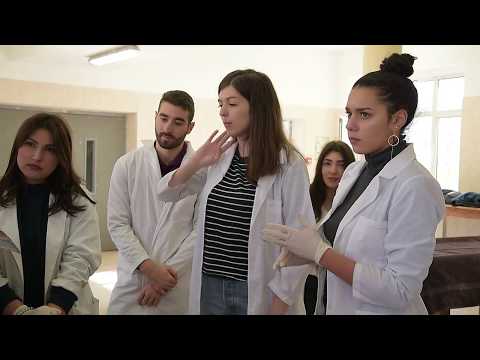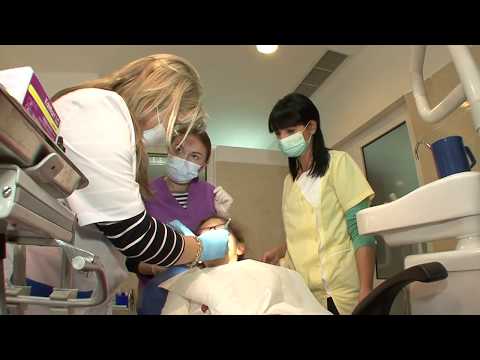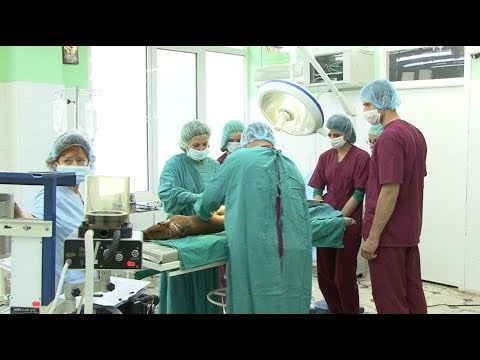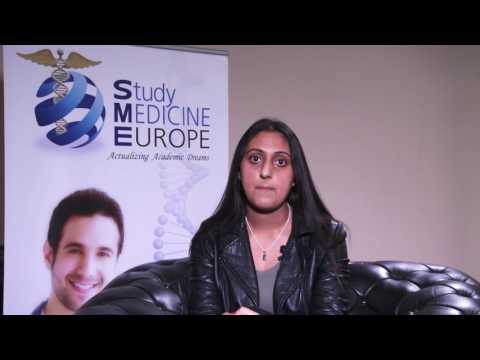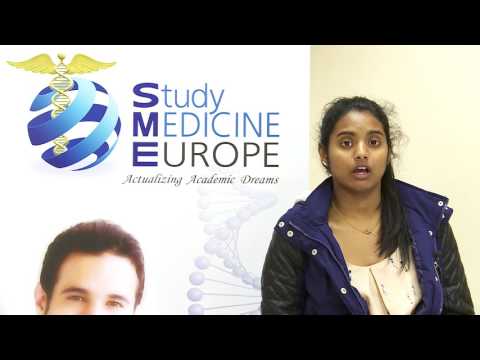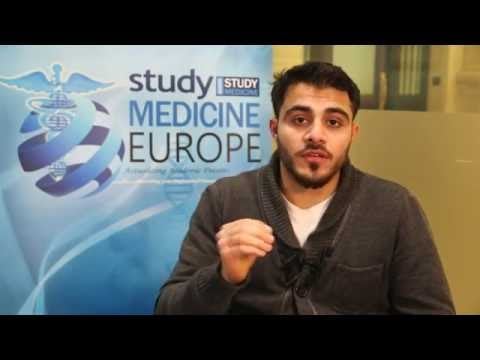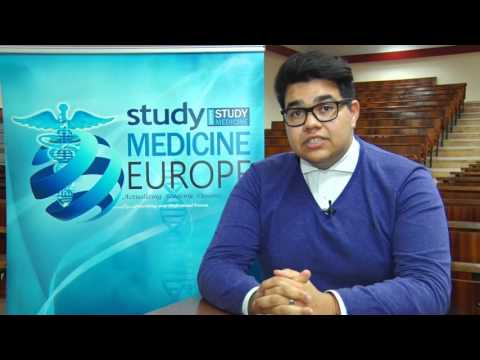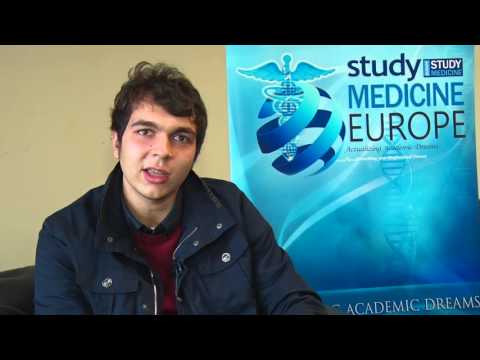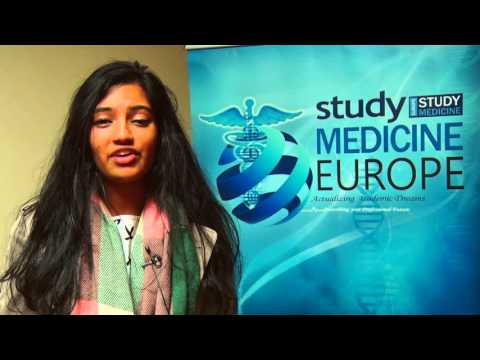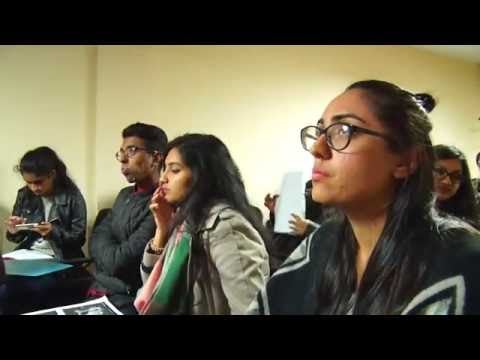Studying Dentistry in Europe: Quick Facts
Admission
No entry exams
Tuition fees
€4,530/year
Duration
5 or 6 Years
Intake
September & March
Funding
Not Available
Online Option
Not Available
- There are so many benefits to studying dentistry programmes abroad whether it’s receiving world-class education, affordable tuition, or worldwide training opportunities.
- For international students from the UK and further abroad, choosing a dental school in Europe means studying a highly competitive programme with a low-stress, accessible admissions process.
- It’s definitely worth it as European dental schools offer a globally-recognised Masters of Dentistry degree compared to the UK schools offering only a Bachelors of Dentistry degree.
- Not only are European dental schools fully accredited but also their degrees are accepted by the UK General Medical Council as well as in the U.S., Canada, Australia, and Ireland.
- English-language dentistry programmes start at just €4,530 per year — up to 65% less than UK dentistry programmes — and living costs in cities are lower, too.
- What’s more, students can opt for undergraduate and graduate programmes in Georgia, Bulgaria, and Romania making it straightforward to find the right programme based on personal preferences and existing qualifications
- Across these European countries, living costs are far less than the UK — at least 40% — without compromising on quality of life.
- Students go confidently in the direction of their dreams by pursuing a challenging programme abroad with less competition for places and without losing any time trying to get into a UK school.
- Personal resilience and life skills are developed at an accelerated rate through living in a foreign country, learning a new language and culture, and building an entirely new professional and personal network with fellow students and medical peers.
- Life at European dental schools is the ideal foundation for a global dentistry career with vibrant campuses, diverse student groups, local and international clinical training, and endless extracurricular, alumni, and community activities and networks to join.
- Three countries in Europe currently offer undergraduate and graduate dentistry programmes:
- Students have their pick of highly-rated dentistry programmes in Europe so they can find the best fit for their preferences of school location, their goals, and the programme curriculum.
- Each school accepts international dentistry programme applications from the UK, other EU countries, non-EU countries, North America, and Australia.
- Students interested in graduate dentistry programmes in Europe can apply to join graduate medicine programmes in Year 2 of the 5-Year Undergraduate Dentistry Programme.
- Applications for 4-Year Graduate Dentistry are currently open at the following Georgian dental schools:
Medical graduate entry programmes are only open to applicants who hold a science-related Bachelor’s Degree, such as biomedical science. It’s an exciting option for students who wish to continue their studies in medical or dental school. Or, it’s perfect for medical professionals who want to enhance their qualifications to improve their career prospects.
European tuition fees are highly competitive starting at €4,530 per year in Georgia compared to an average British dental school annual fee of €10,980.
The table below is an overview of each country’s fees.
| UNIVERSITY | COUNTRY | REGION | PROGRAMME DURATION | TUITION FEES () | WHAT ARE THE ENTRY REQUIREMENTS | INTAKES | DO THEY ACCEPT NON-SCIENCE DEGREES | INTERNATIONAL STUDENTS ACCEPTED |
|---|---|---|---|---|---|---|---|---|
| New Vision University | Georgia | Europe | Undergraduate: 5 Years Graduate: 4 Years | 6,340/year | Undergraduate: No entry exams Graduate: BSc Degree No entry exams | September & March | No | Yes |
| Caucasus International University | Georgia | Europe | Undergraduate: 5 Years | 4,530/year | Undergraduate: No entry exams Graduate: BSc Degree No entry exams | October & March | No | Yes |
| Sofia Medical University | Bulgaria | Europe | Undergraduate: 6 Years | 9,000/year | Exams in Biology & Chemistry | October | N/A | Yes |
| Plovdiv Medical University | Bulgaria | Europe | Undergraduate: 6 Years | 9,000/year | Exams in Biology & Chemistry | October | N/A | Yes |
| Varna Medical University | Bulgaria | Europe | Undergraduate: 6 Years | 9,000/year | Exams in Biology & Chemistry | October | N/A | Yes |
| “Grigore T. Popa” University of Medicine and Pharmacy – Iasi | Romania | Europe | Undergraduate: 6 Years | 7,500/year | No entry exams | October | N/A | Yes |
Check out this detailed breakdown of Georgia, Bulgaria, and Romania student expenses against the UK below for living costs like rent, utilities, groceries, and entertainment are far lower than studying in the UK.
| COUNTRY | RENT (per month – ) | FOOD (per month – ) | UTILITIES (per month – ) | HEALTH INSURANCE (per month – ) | TRANSPORTATION (per month – ) | TOTAL (per month – ) | TOTAL (per year – ) |
|---|---|---|---|---|---|---|---|
| Georgia | 480 – 970 | 80 – 110 | 80 – 100 | 14 | 20 | 674 – 1,204 | 8,088 – 14,448 |
| Bulgaria | 260 – 380 | 150 – 200 | 80 – 100 | 30 – 40 | 30 | 550 – 750 | 6,600 – 9,000 |
| Romania | 180 – 380 | 100 – 150 | 160 | 61 – 125 | 30 | 531 – 845 | 6,372 – 10,140 |
| UK | 680 – 1,880 | 200 – 400 | 350 | 50 | 90 | 1,370 – 2,770 | 16,440 – 33,240 |
- Masters of Dentistry degrees from an accredited dental school in Europe are recognised internationally and graduates can practice dentistry after graduation.
- Recognising degrees in UK and Ireland
- For degree recognition, both the UK General Dental Council and the Republic of Ireland Irish Dental Council require graduates to have completed a minimum of 1600 clinical hours of experience — all European dental schools meet this requirement.
- Once students have graduated, they’re qualified and able to sit the Overseas Registration Exam (ORE) for dentists.
- Recognising degrees in North America — the U.S. and Canada
- The U.S. and Canada recognise degrees from European dental schools:
- Listed on the World Directory of Medicine Schools
- Recognised by the World Health Organization
- Recognising degrees in Australia
- Registration in Australia requires qualification from a minimum 4-Year Dentistry Programme studied full-time; European dental schools offer 5-Year and 6-Year full-time dentistry programmes.
- Get started with finding the right programme with Study Medicine Europe’s service team
Reach out any time via phone, email, or social media to get an information package, ask questions, and learn about Europe’s dental schools. - Let the team know your dentistry school goals, prior studies, and international programmes you’re interested in
From here, your priorities and needs can be used to develop a personalised shortlist of dentistry programmes. - Decide where to apply with the SME team’s support then launch the application process
Using SME’s expert services, take your time to put together a strong application. Every European dental school bases their offers on application, so get the most out of SME’s firsthand knowledge of each university and regions to tailor your application, have documents translated correctly, and their team manage in-person application. - Prepare for entry requirements
While applications are processing, SME will oversee live application tracking and give you support to prepare for any entry exams you might have when your offer comes through. - Get ready for dental school with relocation administration
SME team will switch to relocation and resettlement tasks once your letter of offer arrives. They’ll let you know what student visas you need, advise the best flight routes, and organise a local welcome team. - Study abroad begins with streamlined arrival, registration, and on-the-ground administration services
The local team in your new city will help you get from the airport to your temporary accommodation. From there, it’s all simple as their services cover heading to campus for registration, opening bank accounts, official residency permits, and finding a rental.
With SME’s help, finding the right programme, applying, and moving abroad is not only easy — it’s enjoyable. Especially once students have arrived in their new country of study, the local team’s logistical support means they’re able to make new friends and focus on their programme immediately.
- Prospective dental students from all over the world can apply for undergraduate and graduate programmes in dentistry taught entirely in English in: Georgia, Bulgaria, and Romania.
- Each country has unique requirements for programme entry, student visas, and student residency permits.
- The leading mandatory qualifications for undergraduate dentistry programmes in Europe are:
- Secondary school education
- English proficiency
- Students applying for dentistry programmes in Europe are required to submit the following documents:
- An application which includes the following details: bio, education history and course for which you are applying.
- A copy of your secondary education results with subjects studied.
- Two small photos of 4-5cm.
- The diploma, academic transcript and health certificate must be translated into each region’s official language and legalised as per official state directives.
- Once students have received a letter of offer, each region and its dental schools has specific additional entry requirements:
| Georgia |
|
| Bulgaria |
|
| Romania |
|
- When students study dentistry in Europe they can accept a curriculum structure consistent with EU standards of foundation modules, clinical training, internships, and state exams.
- Undergraduate programmes are always at least five years and in some cases, they’re six years; graduate programmes are four years.
- Once students complete and graduate their programme, they’re internationally qualified with a Masters of Dentistry degree and ready to practice.
- Although each region’s terminology and semester duration may vary, most programmes are structured into:
- Theoretical Modules
- Curriculum content: Pre-clinical modules covering dentistry foundational theories plus medical and sciences modules such as biomedical science, anatomy, surgery, and biology.
- Duration: Around two years
- Clinical Modules
- Curriculum content: Clinical rotations, practical training, and modules covering dentistry procedures and surgeries in dental hospitals and clinics in each country.
- Duration: Around three years or proportioned out to 800 total clinical hours accrued
- Theoretical Modules
- Additional important facts:
- Georgia — the undergraduate programme is a 5-Year course; the graduate programme is a 4-Year course that students begin in Year 2 of the undergraduate programme.
- Bulgaria — has a Clinical Internship and state exams in Year 6 of the dentistry programme:
- Internships
- Curriculum content: Professional state clinical practice in hospitals or dental clinics practising core dentistry skills and competencies including (paediatric, oral and maxillofacial surgery experience, denture dentistry, and conservative dental).
- Duration: Around six months of the final year of the programme
- Internships
- Romania — in Year 6, students complete complex oral treatment training and integrated courses in specialist areas, as well as writing a dissertation.
- Bulgaria and Romania — both have state exams before graduation:
- State exams
- Curriculum content: Students sit a written state exam covering dental medicine theory, procedures, practices, followed by a practical examination.
- Duration: Based on each country’s requirements
- State exams
- International students may need to use online study options during their programme whether for unforeseen circumstances or for personal accommodations.
- Any dentistry programme or European medical school will offer online studies through their university portal for streamlined, secure studies.
- There’s so many reasons for why online study is beneficial, not least because it helps students stay up-to-date with their programme, complete modules, watch live lectures, attend tutorials, and access course materials.
- Additionally students can use interactive features like video meetings with lecturers and professors, sit examinations, and engage with question banks.
- While online studies are invaluable for theoretical modules during pre-clinical programme years, every student needs to complete clinical training in person.
- This means that once students complete their pre-clinical studies — typically Year 1 and Year 2 for dentistry programmes — they will start their clinical training at their university’s partner hospitals and clinics.
- Understandably, students wonder if they can delay moving abroad for their programme if they’re studying modules this way — it’s definitely possible though dental school studied online is still as rigorous and demanding as in-person.
- If students are studying online, class attendance is still required as per the dentistry programme timetable; the same applies to assessment and exam policies.
- Of the European dental schools, international students can study part of their dentistry programme online at New Vision University, Georgia.
- Students choosing to study dentistry in Europe obviously benefit from lower tuition fees and living costs compared to UK schools.
- It’s always worth having a solid grasp of what financial supports are available at the university and the wider country.
- Standard financial support options are: Scholarships and Student Loans.
- European dental school scholarships are typically offered through the university, although some students may be able to apply for scholarships through their home country such as a study stipend or international student grant.
- Dental schools frequently award scholarships based on academic merit so many options might not be available until students have completed their first year of study. Then, the scholarship might have conditions such as maintaining a certain GPA in line with the university’s terms for academic awards.
- Student loans, on the other hand, can be accessed via the university or through local financial institutions in the university country.
- In the case of student loans, there is no guarantee of access, rates, or quality of options, so students are encouraged to thoroughly research and seek advice at their university before committing to loans.
- Each European country’s financial supports are unique and further information about Georgia, Bulgaria, and Romania is covered in our FAQs:
- Scholarships and Loans in Georgia
- Scholarships and Loans in Bulgaria
- Scholarships and Loans in Romania
- Make international dental school a reality with the world leaders in student medical programme services: Study Medicine Europe (SME).
- For over 15 years, SME has helped thousands of students succeed in their dentistry career journey through ongoing relationships with gold-standard European and North American medical universities.
- SME’s passion, knowledge, experience, diversity, and size is what makes their personalised student services consistent, effective, and positive.
- After decades of working with students from all over the world, prospective dentistry abroad students can relax and enjoy the process of finding their dream school, applying effortlessly, and seeing their hopes become reality.
- With an acceptance letter in hand, SME’s country teams ensure students relocate, enrol, and settle into their preferred dental school.
SME’s processes cover every part of the international dentistry training journey so no matter what, students are taken care of, with support and services always available whether it’s check-ins during their programme or getting ready for graduation, making the pathway to a global career fulfilling and fun.
Start the application process today by chatting with an SME student services specialist — we’re here to help, answer questions, and bring dentistry school to you. Contact us and find out more about dentistry programmes in Europe now!









